
Terence Hanbury "Tim" White was an English writer. He is best known for his Arthurian novels, which were published together in 1958 as The Once and Future King. One of his best known is the first of the series, The Sword in the Stone, which was published as a stand-alone book in 1938.
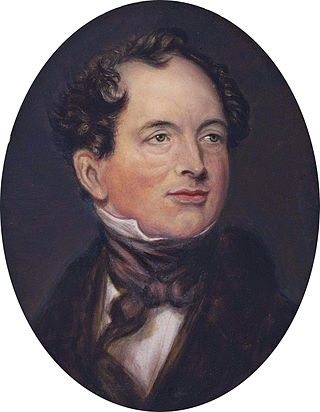
Thomas Moore, also known as Tom Moore, was an Irish writer, poet, and lyricist celebrated for his Irish Melodies. His setting of English-language verse to old Irish tunes marked the transition in popular Irish culture from Irish to English. Politically, Moore was recognised in England as a press, or "squib", writer for the aristocratic Whigs; in Ireland he was accounted a Catholic patriot.
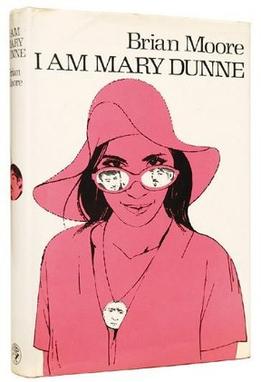
I Am Mary Dunne is a novel, first published in 1968, by Northern Irish-Canadian writer Brian Moore about one day in the life of a beautiful and well-to-do 31-year-old Canadian woman living in New York City with her third husband, a successful playwright. Triggered by seemingly unimportant occurrences, the protagonist / first person narrator remembers her past in a series of flashbacks, which reveal her insecurities, her bad conscience concerning her first two husbands, and her fear that she is on the brink of insanity.
Brian Coffey was an Irish poet and publisher. His work was informed by his Catholicism, his background in science and philosophy, and his connection to French surrealism. He was close to an intellectual European Catholic tradition and mainstream Irish Catholic culture. Two of his long poems, Advent (1975) and Death of Hektor (1979), were widely considered to be important works in the canon of Irish poetic modernism. He also ran Advent Books, a small press, during the 1960s and 1970s.
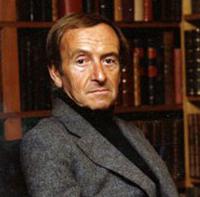
Brian Moore, was a novelist and screenwriter from Northern Ireland who emigrated to Canada and later lived in the United States. He was acclaimed for the descriptions in his novels of life in Northern Ireland during and after the Second World War, in particular his explorations of the inter-communal divisions of The Troubles, and has been described as "one of the few genuine masters of the contemporary novel". He was awarded the James Tait Black Memorial Prize in 1975 and the inaugural Sunday Express Book of the Year award in 1987, and he was shortlisted for the Booker Prize three times. Moore also wrote screenplays and several of his books were made into films.

Frank Frankfort Moore (1855–1931) was an Irish journalist, novelist, dramatist, and poet. He was a Belfast Protestant and a unionist, but his historical fiction during the years of Home Rule agitation did not shy from themes of Irish-Catholic dispossession.
The Irish Literary Revival was a flowering of Irish literary talent in the late 19th and early 20th century. It includes works of poetry, music, art, and literature.

James Clarence Mangan, born James Mangan, was an Irish poet. He freely translated works from German, Turkish, Persian, Arabic, and Irish, with his translations of Goethe gaining special interest. Starting around 1840, and with increasing frequency after the Great Famine began, he wrote patriotic poems, such as A Vision of Connaught in the Thirteenth Century. Mangan was troubled, eccentric, and an alcoholic. He died early from cholera, amid the continuing dire conditions of the Famine. After his death, Mangan was hailed as Ireland's first national poet and admired by writers such as James Joyce and William Butler Yeats.
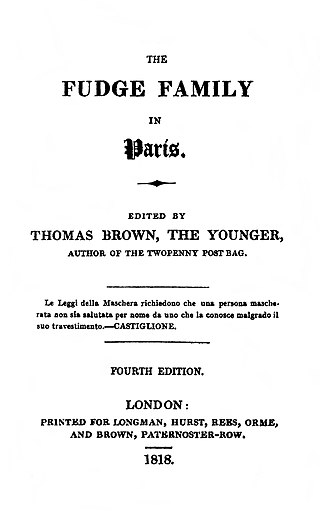
The Fudge Family in Paris is an 1818 verse satire by Thomas Moore. It was intended to be a comedic critique of the post-war settlement of Europe following the Congress of Vienna and of the large number of British and Irish families who flocked to France for tourism. Written after a brief trip to Paris, its popular success inspired several more parodies and replies.
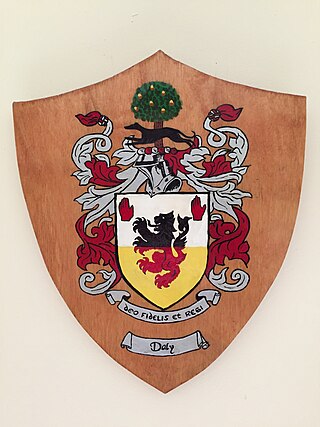
The Ó Dálaigh were a learned Irish bardic family who first came to prominence early in the 12th century, when Cú Connacht Ó Dálaigh was described as "The first Ollamh of poetry in all Ireland".

Leonard Alfred George Strong was a popular English novelist, critic, historian, and poet, and published under the name L. A. G. Strong. He served as a director of the publishers Methuen Ltd. from 1938 to 1958.

John Harold Hewitt was perhaps the most significant Belfast poet to emerge before the 1960s generation of Northern Irish poets that included Seamus Heaney, Derek Mahon and Michael Longley. He was appointed the first writer-in-residence at Queen's University Belfast in 1976. His collections include The Day of the Corncrake (1969) and Out of My Time: Poems 1969 to 1974 (1974). He was also made a Freeman of the City of Belfast in 1983, and was awarded honorary doctorates by the University of Ulster and Queen's University Belfast.
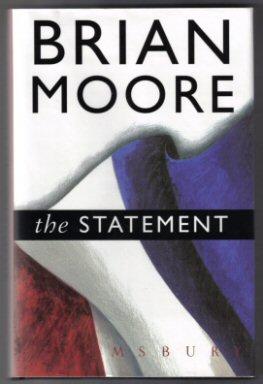
The Statement (1995) is a thriller novel by Northern Irish-Canadian writer Brian Moore. Set in the south of France and Paris in the early 1990s, The Statement is the tale of Pierre Brossard, a former officer in the pro-fascist militia that served Vichy France and a murderer of Jews. The novel was published by Bloomsbury in the United Kingdom in 1995 and by E.P. Dutton in the United States on 1 June 1996.

The Hard Way is the fourth studio album by Steve Earle, released in 1990. Earle is backed by the Dukes. The album is dedicated to Emilio Lorenzo Ensenat (1930–90).

The Revolution Script is a fictionalised account by Northern Irish-Canadian novelist Brian Moore of key events in Quebec's October Crisis – the kidnapping by the Quebec Liberation Front of James Cross, the Senior British Trade Commissioner in Montreal, on October 5, 1970 and the murder, a few days later, of Pierre Laporte, Minister of Labour in the Quebec provincial government. It was published in Canada and the United States at the end of 1971. The British newspaper The Sunday Times reproduced excerpts from the book and it was published in the United Kingdom in January 1972.
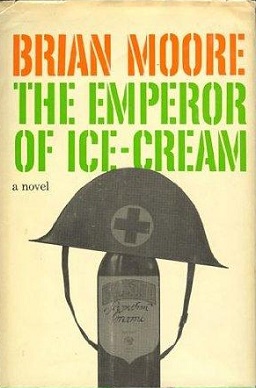
The Emperor of Ice-Cream is a 1965 coming-of-age novel by writer Brian Moore. Set in Belfast during the Second World War, it tells the story of 17-year-old Gavin Burke who, admitting "war was freedom, freedom from futures", defies his nationalist and Catholic family by volunteering as an air raid warden with the largely Protestant ARP. The novel follows Gavin's journey as he realises that there are those on the other side of the city's bitter communal division whose friendships offer a wider horizon.

The Colour of Blood, published in 1987, is a political thriller by Northern Irish-Canadian novelist Brian Moore about Stephen Bem, a Cardinal in an unnamed East European country who is in conflict with the Roman Catholic Church hierarchy and finds himself caught in the middle of an escalating revolution.
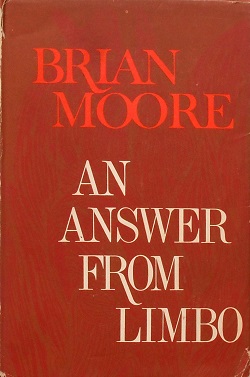
An Answer from Limbo is a novel by Northern Irish-Canadian writer Brian Moore, published in October 1962. It was written between November 1960 and early 1962, when Moore was living in New York.
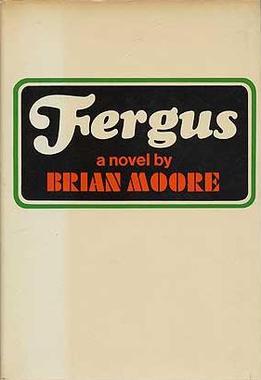
Fergus, a novel by Northern Irish-Canadian writer Brian Moore, was published in 1970, in the United States by Holt, Rinehart and Winston. It tells the story of Fergus Fadden, a 39-year-old Irish-born writer living in California, who is haunted by ghosts from his past, including that of his father.
Patricia Craig is a writer, anthologist and literary critic from Northern Ireland, living in Antrim, County Antrim.

















